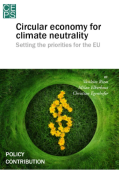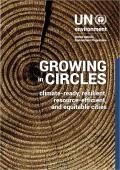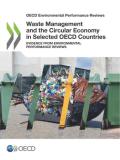
This Policy Brief looks at how circular economy can support EU climate policy, emphasizing that circular economy is more than just another ‘product standards’ policy. It calls for a framework that is able to systematically address trade-offs, a mechanism to steer and monitor progress, and the need to develop and then scale up successful products and processes to create opportunities for new value chains while addressing risks, such as dependency on raw materials.

Contributors to this issue of UNIDO’s Making It magazine look at the circular economy from a variety of angles, from Ken Webster’s introduction to systems thinking to Ewa Lewandowska’s argument for social equality to be included in the design of the new circular economy. The issue also takes a look at the design and re-design aspects of circularity, and introduces the Rizhao eco-industrial park, one of the best examples of the impact of Chinese government policies that encourage industrial symbiosis as part of its circular economy drive.
This publication Policy Enablers to Accelerate the Circular Economy aims to provide insights from the policy perspective and to feed into the ongoing development of other initiatives and policies related to the circular economy globally.

The report Growing in Circles: Climate-ready, resilient, resource-efficient and equitable cities summarises the results of applying recommendations set out in the Weight of Cities report by the International Resource Panel. This summary report describes the original work that has been developed by the Global Initiative for Resource Efficient Cities (GI-REC) to identify and test promising approaches and tools in pilot cities around the world, especially in the global south.

Waste Management and the Circular Economy in Selected OECD Countries provides a cross-country review of waste, materials management and circular economy policies in selected OECD countries, drawing on OECD’s Environmental Performance Reviews during the period 2010-17.
